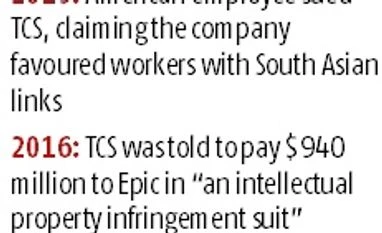Indian information technology (IT) services companies are facing more litigation over alleged breaches of contract and disputes on project implementation timelines.
Delays in promised service delivery were earlier settled between client and service provider. More organisations now opt for a legal settlement to save cost and protect investor sentiment, say analysts.
Last week, Conduent, a US-based business process outsourcing company spun off from Xerox, filed a lawsuit in New York against Cognizant Technology Solutions for breach of contract. It is seeking to recover $150 million (Rs 1,000 crore).
The dispute is over a contract under which Cognizant prepared a Request for Proposal (RFP) for Conduent to replace legacy Medicaid management information systems with a new one called Health Enterprise. Conduent hired Cognizant as a subcontractor for its implementation.
It has now alleged that while it relied on Cognizant’s expertise in preparing these estimates and in scoping the level of effort required to deliver the project to the state of New York, “Cognizant’s estimates were materially deficient and grossly understated”.
“The lawsuit is the result of an ongoing contractual dispute between the two companies stemming from that project, including Conduent’s failure to pay Cognizant for much of the work that it performed,” said a Cognizant spokesperson. He said the company would vigorously defend itself and counter-claim damages.
In another Rs 665 crore ($100 million) lawsuit last month, HCL Technologies was sued by a Chicago-based client, MillerCoors, which contended breach of contract and delay in transformation of technology systems across business locations.
“Lawsuits are pretty common in the US. It is often part of their strategy. We are now seeing it in the IT services industry. In the current environment, where performance is evaluated quarterly, organisations do not want to hold on to any issue for long,” said Pareekh Jain, analyst at HfS Research India.
Today, he added, Indian IT firms were answerable for delays in project implementation with disruption in technology like cloud-based delivery.“Earlier, organisations tried to solve disputes amicably but the dynamics of businesses have changed,” he said.
Another sector analyst said it would not be right to compare the the lawsuit against Cognizant with recent cases such as the one involving HCL, as one was a business dispute between a contractor and a subcontractor and the others were client versus company disputes.
Stricter regulations, coupled with emergence of digital technologies, force customers of IT vendors to seek faster resolution legally. “Regulations and compliance are becoming more stringent and investor communities are after clients for a technology transformation. On the other hand, things like automation and use of digital technologies prompt investors of these clients to ask questions on faster technology implementation,” said Rajesh Gupta, India partner at research firm ISG.
In many cases, clients also appear to be rigid. “Due to dynamic business situations on the client’s side, service providers often are not able to finish certain implementations on time.
While targeted operational efficiencies are promised, workloads also increase on the client’s side. Clients often stick to the agreement, irrespective of the change in real business.
As a result, we are seeing more lawsuits. It could happen across Indian and global IT vendors,” he added. Indian IT firms have seen also lawsuits for various reasons, apart from delay in implementation. About a year ago, US-based Epic sued Tata Consultancy Services, claiming “improper access to an Epic portal by a TCS employee”. And TCS was told to pay $940 million to Epic in “an intellectual property infringement suit”.
In 2011, a US national, Jack Palmer, sought an investigation into Infosys’ visa practices, claiming violations by the company.
Later, he filed another lawsuit against the company when he lost the previous case, demanding “reappointment and compensation” for wrongful termination of employment. Infosys paid $34 million after a federal investigation on visa fraud and hiring process errors.
In another incident in 2015, an American employee sued TCS, claiming the company favoured workers with South Asian links.
Unlock 30+ premium stories daily hand-picked by our editors, across devices on browser and app.
Pick your 5 favourite companies, get a daily email with all news updates on them.
Full access to our intuitive epaper - clip, save, share articles from any device; newspaper archives from 2006.
Preferential invites to Business Standard events.
Curated newsletters on markets, personal finance, policy & politics, start-ups, technology, and more.
)